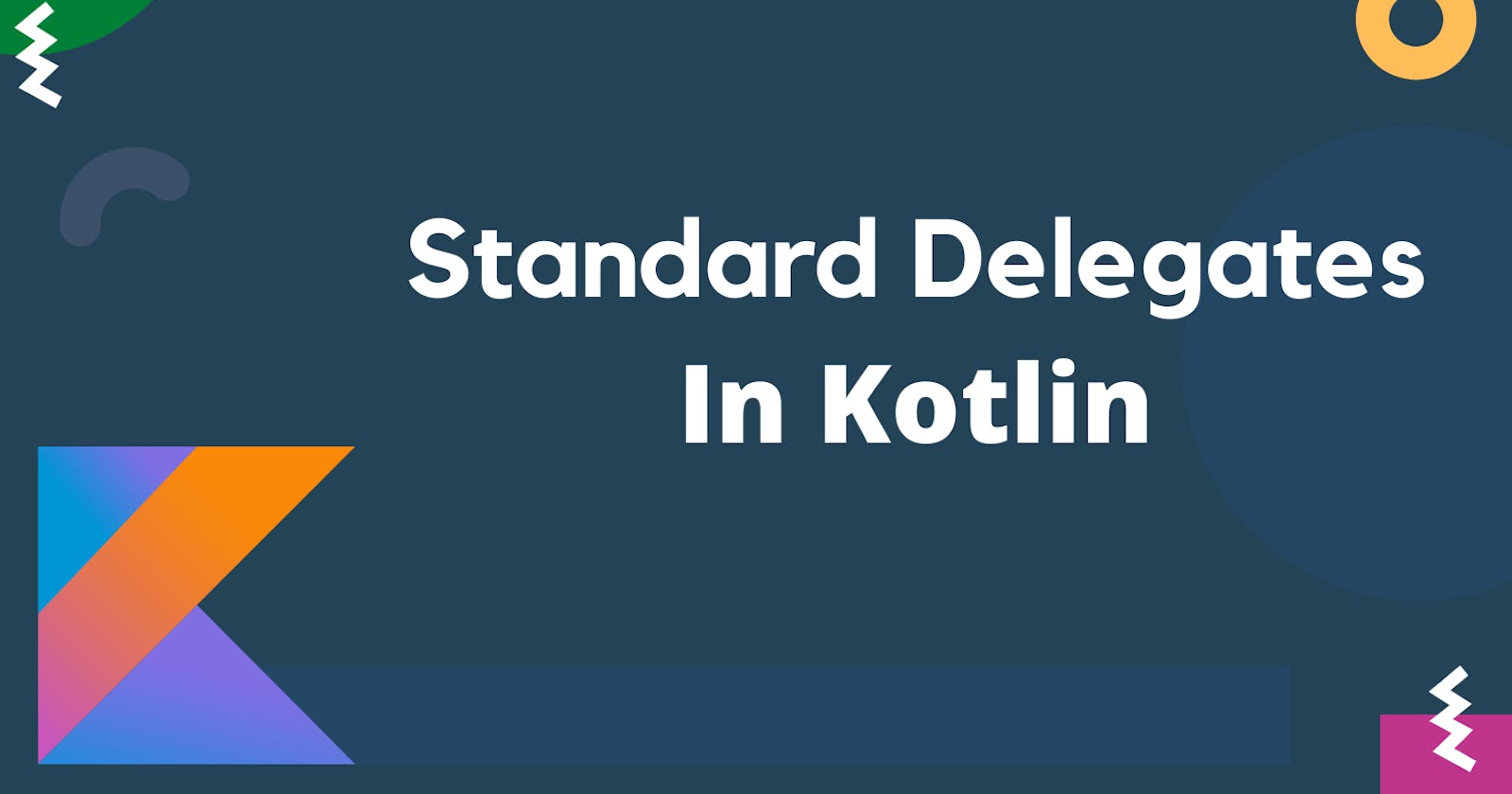1. lazy property - it used to create an object that is initialized only first access to the property value and store value and return it. By default lazy is synchronized the value is computed only in one thread ,and value will be same in all thread
/* immutable variable*/
val ourValue:String by lazy(){
println("Hello World")
callAnother() /* this will run only first access*/
"Hello what is going on "
}
fun callAnother(){
print("another fun ")
}
fun main(args: Array<String>) {
println(ourValue)
println(ourValue)
println(ourValue)
// ourValue = 90 // value can't change
}
/*
output
Hello World
another fun
Hello what is going on
Hello what is going on
Hello what is going on
*/
2. Observable Properties: lambda will be triggerd every time when value of property will be changed.
import kotlin.properties.Delegates
class Person{
/* mutable variable */
var ourValue: String by Delegates.observable("Hello World"){ property ,oldValue,newValue ->
print("\n prop $property ")
print("\n oldValue $oldValue ")
print("\n newValue $newValue ")
}
}
fun main(args: Array<String>) {
val p = Personn()
print(p.ourValue) // Hello World
p.ourValue = "change world"
}
// output
// Hello World
// prop property ourValue (Kotlin reflection is not available)
// oldValue Hello World
// newValue change world
3. vetoable - it 's simmilar to obervable , only change is when assign the value onChange (callback) is called if return true then new value will be assigned otherwise old value.
class Person1{
var ourValue by Delegates.vetoable("Hello") {
property, oldValue, newValue ->
newValue.length > oldValue.length /* condition should be true to assign new value */
}
}
fun main(args: Array<String>) {
val p1 = Person1()
p1.ourValue = "World" // Hello
p1.ourValue = "Worlds"
println(p1.ourValue) // Worlds
}
4. notNull - this delegates is used to be initialized later. it's similar to lateinit. It can be used with primitive data type which lateinit not support
var fullname: String by Delegates.notNull<String>()
fun main(args: Array<String>) {
// can't access without initialization , gives exception
print(fullname) // java.lang.IllegalStateException
fullname = "Justin Bieber"
print(fullname) // Justin Bieber
}
